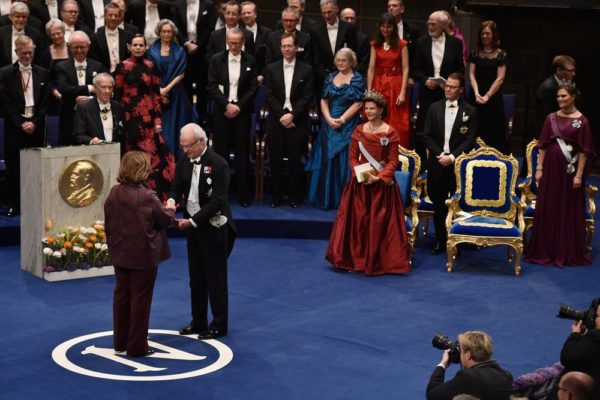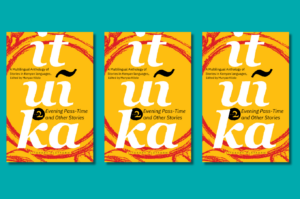
As is their tradition, the Swedish Academy, custodians and givers of the Nobel Prize in Literature, have, 50 years after it was awarded to Guatemalan writer-diplomat Miguel Ángel Asturias, unveiled their list of nominations for the year 1967. The nominees are kept secret until the 50th year after each award.
The 70-name list, writes M. Lynx Qualey for Book Riot, features only five female writers: German short story-writer and essayist Marie Luise Kaschnitz, Australian poet Judith Wright, American short story-writer Katherine Anne Porter, German-Jewish novelist Anna Seghers, and Ukranian poet Lina Kestenko. The last woman to receive the prize, Belarusian journalist and nonfiction writer Svetlana Alexievich in 2015, was only the fourteenth woman so honoured since the prize began in 1901.
Among the first-time nominees for the 1967 prize, writes M.A. Orthofer for Literary Saloon, are “future winners Saul Bellow and Claude Simon, as well as Jorge Amado, Jean Genet, György Lukács — and the (as best I can tell) last surviving nominee, Hans Magnus Enzensberger.” Other names on the list include “Auden, Beckett, Ionesco, Kawabata, Mishima, Montale, Moravia, Neruda, Katherine Anne Porter, Anna Seghers, Simenon, and J.R.R.Tolkien.” Also on the list, writes Alison Flood for The Guardian, is “Japanese author Yasunari Kawabata, who would win the following year,” 1968.
The race came down to a final trio of the English novelist Graham Greene, Argentine short story-writer, essayist and poet Jorge Luis Borges, and Guatemalan writer-diplomat Miguel Ángel Asturias, who eventually won “for his vivid literary achievement, deep-rooted in the national traits and traditions of Indian peoples of Latin America.” The Guardian‘s report gives some detail:
Greene was supported by the committee’s chairman, Anders Osterling, who called him “an accomplished observer whose experience encompasses a global diversity of external environments, and above all the mysterious aspects of the inner world, human conscience, anxiety and nightmares”. Osterling had doubts, writes Kaj Schueler, about the two Latin American authors, calling Asturias “too narrowly limited in his revolutionary subject world”, and Borges “too exclusive or artificial in his ingenious miniature art”.
Three other committee members disagreed, and Asturias would go on to take the prize. Schueler speculates that Greene may have lost support “because the academy slowly was orienting itself towards a more global outlook – it was after all the second half of the 1960s and the climate in western societies was more interested in everything outside Europe”. The Nobel committee never honoured Greene or Borges, two authors who are still widely read, while Asturias’s titles are more scarce.
Nominations for the 2017 prize, which went to English-Japanese novelist Kazuo Ishiguro, will be revealed in 2067. It would be interesting, as the years wear on, to see which years Chinua Achebe and Ngugi wa Thiong’o—who has been a, and often the, front-runner since 2010—were nominated. Controversially, though, would be the list of nominees for 2016 when the American rockstar-millionaire Bob Dylan won.
For people fluent in Swedish, HERE is a PDF of the nominations.









Norine Hair December 18, 2019 10:40
Hey I have a question, i see a lot of products in this webshop https://screenshot.photos/product56 that you also sell in your shop. But there items are 11% cheaper, well my question is what is the difference between your webshop and theirs, Is it the quality or something else, I hope you can answer my question. Sincerely "Sent from my iPhone"